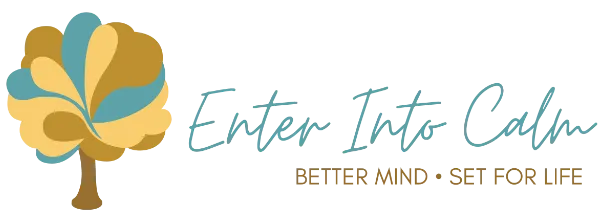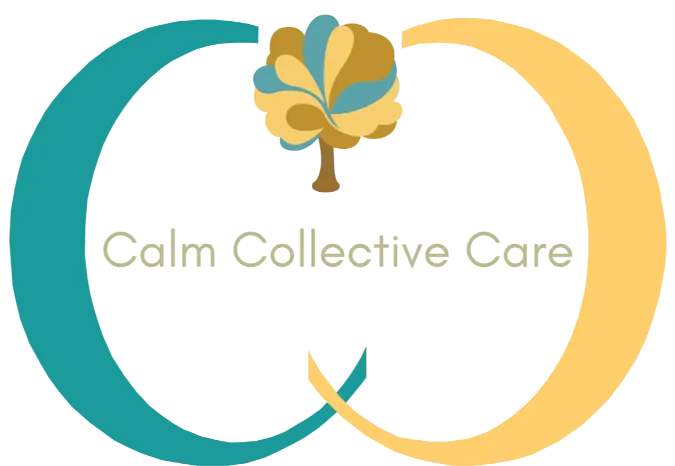Breaking Free from Delay: How Hypnosis Can Help You Overcome Procrastination
Nov 24, 2025
Do you ever find yourself knowing exactly what you need to do -- and yet still not doing it? Maybe you’ve committed to starting a project, writing a paper, making an important call… but somehow you stall. You imagine diving in, but instead you scroll, you research one more thing, you tell yourself “I’ll start in five minutes.” And suddenly the day is gone.
If this feels familiar, you’re not alone. Procrastination isn’t simply laziness or a lack of willpower. It’s often a signal- - a quiet alarm – from your deeper mind: “Something here doesn’t feel safe. Something in me is resisting.”
That’s where hypnosis comes in – not to shame you into action, but to help you understand and re-align the deeper drivers of procrastination, so you can step into productivity with ease, clarity, and inner support.
Why We Procrastinate

Understanding the roots helps us respond differently. Some of the key underlying factors include:
- Emotional avoidance: Delaying tasks that trigger anxiety, fear of failure, self-judgment, or overwhelm. Many procrastinators report that tasks feel heavy, uncertain, or stuck in “what ifs.”
- Cognitive blocks: Negative self-beliefs (“I’m not ready”, “I’m not good enough”), perfectionism, and lack of clarity about next steps. These slow the start, making the task seem bigger than it really is.
- Habitual patterns: Repeatedly choosing comfort or escape (scrolling, cleaning, organizing) over the discomfort of beginning. Over time this becomes automatic. Hypnosis helps interrupt those automatic loops.
Procrastination is more than a time-management issue – it’s often a mind-management issue.
How Hypnosis Helps
Here are three key ways hypnosis supports overcoming procrastination:
1. Creating calm, receptive states.
When we’re stressed, our sympathetic nervous system (“fight or flight”) is active, and initiating tasks becomes harder. Hypnosis brings the body into the parasympathetic zone (rest, restore, regulate), reducing physiological resistance and making task-initiation smoother.
2. Accessing the subconscious to reshape patterns.
In a hypnotic state, the mind becomes more receptive to positive suggestions and new ways of thinking. If your inner narrative says “I’ll do it when I’m ready,” hypnosis can gently shift that to “I begin when I choose, I am capable.” Studies show hypnosis can enhance emotional regulation and shift subconscious associations.
3. Building new mental pathways and habits.
Rather than simply telling yourself to stop procrastinating, hypnosis helps you embody new responses: ease in starting, clarity in action, satisfaction in completion. Over time, starting tasks becomes less of a fight and more a flow. One article on the hypnotic approach to procrastination notes that reframing emotional responses to tasks (via visualization, suggestion) can transform behavior.
What a Hypnosis-Session Might Look Like

Here’s a rough map of how hypnosis could support you in turning procrastination into productivity:
- You begin with a guided induction – relaxation, counting down, entering a calm state.
- You visualize yourself stepping into the moment you’ve been avoiding – see it clearly, feel safe, see yourself begin.
- You explore the internal resistance – what it feels like, how it shows up – and then you gently shift it: imagine the resistance dissolving, making space.
- You anchor a new image: you starting the task easily, the momentum growing, the relief afterwards.
- You future-pace: you see yourself in days ahead, beginning tasks, feeling good about progress, free of the old hold of delay.
- You emerge anchored in that new pattern of ease and action.
Bringing It Into Everyday Life
Hypnosis is powerful, but the shifts are most meaningful when translated into daily moments. Here are a few suggestions:
- After your session, choose one small task – something you can begin in 5 minutes. Use the momentum.
- Use reminders or cues (a phone lock screen message like: “I begin now”) that tie into the hypnotic suggestions you’ve internalized.
- Practice brief self-hypnosis or grounding before tasks: a 2-minute breath, a quick visualization of finishing. It sets the tone.
- Be compassionate. If you slip back into delay, don’t fuel shame – notice, gently redirect, and return to your cue. Hypnosis changes the underlying soil so you can grow differently.
Final Thoughts
If you’ve been carrying the weight of “I’ll do it later,” or feeling the silent drain of tasks left undone, know this: the part of you that wanted to start wasn’t lazy – it was trying to protect you from overwhelm, judgment, or confusion. Hypnosis doesn’t push you harder. It invites you to reconnect with your best self, the self who begins with curiosity and kindness.
By working with hypnosis, you shift from “Why am I stuck?” to “How can I begin in a way that supports me?” You step into action – not because you’re forced to – but because your mind, body, and heart are aligned for that change.
If you’re ready to move from delay to doing, from hesitation to flow, hypnosis offers a graceful pathway. And as you begin, remember: one gentle step forward is still forward.
Moving Forward
That’s where hypnosis comes in – not to shame you into action, but to help you understand and re-align the deeper drivers of procrastination, so you can step into productivity with ease, clarity, and inner support.
At Calm Collective Care, we’re committed to making evidence-informed, nervous-system–based approaches accessible in ways that fit real lives. Through secure Zoom sessions, you can engage in clinically grounded hypnotherapy from the comfort of your home—without sacrificing depth, safety, or connection.
Our work is rooted in the same principles explored here: restoring agency, reducing fear, and helping the nervous system learn new patterns of response. Whether you’re navigating chronic pain, stress, anxiety, or a desire for greater clarity and resilience, our collective approach blends hypnotherapy with coaching and mindfulness-based practices to support meaningful, sustainable change.
Ways to Get Started
Guided Group Hypnosis
We offer live, guided group hypnosis sessions designed to support stress reduction, confidence, emotional regulation, and nervous system resilience. These sessions provide a structured, supportive environment for experiential learning—whether you join live or explore our growing audio library.
👉 Learn more Group Session in the Change Your Life Circle
👉 Access the ever-expanding Audio Library
One-on-One Hypnotherapy
For a more personalized approach, working individually with a certified hypnotherapist allows for tailored support aligned with your specific goals, history, and nervous system patterns. You can explore our team of practitioners and schedule a consultation to find the right fit.
Guest Author:
Hannah Henjum
Consulting Hypnotist, NLP & Time-Line Therapy® Practitioner
Specialties: Stress | Confidence
Hannah specializes in helping clients overcome stress and build confidence and joy in their daily lives. She uses hypnosis and NLP techniques to help individuals resolve the underlying mental and emotional blocks that affect their well-being and self-esteem. Her approach is centered on creating a balanced, fulfilling life for her clients, helping them develop strategies for long-term mental clarity and resilience. Hannah empowers clients to bring curiosity, joyfulness, and ease back to their lives.
References:
-
Crăciun, B. (2012). “The efficiency of Ericksonian hypnosis in diminishing stress and procrastination in patients with generalized anxiety disorder.” The study found hypnosis could reduce procrastination among anxious patients.
-
Higgins, C. (2025). “The hypnotic approach to procrastination: A fresh perspective.” This article explores how cognitive behavioral hypnotherapy reframes emotional avoidance and supports task initiation.
-
“Effectiveness of hypnotherapy and therapeutic coaching in overcoming procrastination…” (2023). This summary article suggests that hypnotherapy can enhance motivation, self-discipline, and task initiation.
-
Fox, K.C.R., Kang, Y., Lifshitz, M., Christoff, K. (2016). “Increasing cognitive-emotional flexibility with meditation and hypnosis: The cognitive neuroscience of de-automatization.” This neuroscience perspective explains how hypnosis helps change automatic patterns of thought and behavior.
Be Calm ...
and experience hypnosis!
Hypnosis can help in many ways. Curious Minds should Stay Curious.
Boost Self-confidence • Lessen Anxiety • Grief• Cancer • Create Positive Mindset • Eliminate Limiting Beliefs • Improve Sleep • Manage Pain Better • Prepare for Childbirth • Enhance Performance • Heal & Resolve Grief • Change Habits • Weight Loss without Dieting • Smoking Cessation • Stress Reduction • Stop Teeth Grinding • & more
Connecting with me 1:1 is fast and easy!


